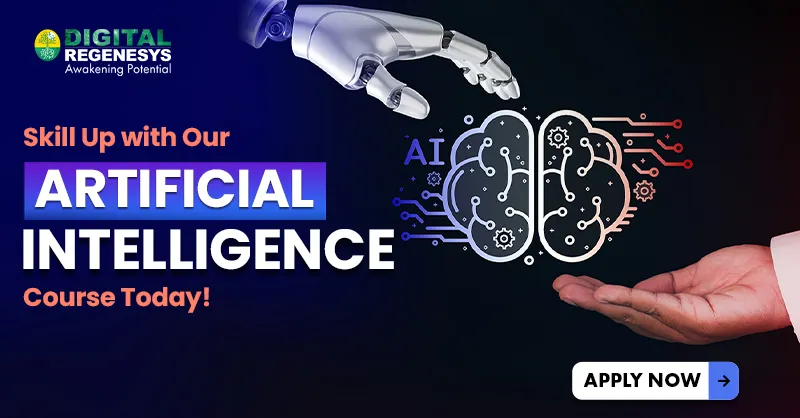Namibia Artificial Intelligence Trends for 2026

Have you ever considered how AI could redefine Namibia’s industries and society by 2026? As digital adoption accelerates, artificial intelligence is poised to become a major driver of innovation, efficiency, and economic growth in the country.
Namibia’s mobile and internet penetration is steadily increasing, providing fertile ground for AI-driven applications in sectors like agriculture, healthcare, education, finance, and governance.
The rise of AI in Namibia is not just about technology; it’s about creating smarter solutions for everyday challenges. From optimising crop yields and enhancing healthcare delivery to streamlining public services and financial systems, AI can offer practical solutions that improve quality of life.
In this article, we explore Namibia’s AI trends for 2026, emerging technologies, sectoral applications, workforce readiness, policy considerations, challenges, and strategic recommendations.
By understanding these trends, readers can identify opportunities, prepare for the AI-driven future, and contribute to Namibia’s growing digital economy.
The AI Landscape in Namibia: Opportunities Await
Namibia’s AI ecosystem is gradually taking shape, with startups, research centres, and government initiatives driving innovation. Investment in AI technologies is growing, supported by public-private collaborations and international partnerships. Universities and innovation hubs are exploring AI applications tailored to local needs, from agriculture to healthcare.
Awareness of AI’s potential is increasing among businesses and policymakers, highlighting opportunities for efficiency, competitiveness, and social impact. These developments suggest that Namibia is steadily moving toward a more digitally advanced and AI-ready economy.
A clear understanding of Namibia’s AI landscape sets the stage for exploring emerging trends and opportunities.
Highlights:
- Growing AI startup ecosystem.
- Government digital initiatives and support.
- Research and innovation hubs.
- International partnerships.
- Investment in AI technologies.

Top AI Trends Shaping 2026
Several AI trends are set to transform Namibia by 2026. Predictive analytics will optimise agricultural production, forecast financial risks, and support business decisions. Automation and AI-driven robotics will improve operational efficiency in manufacturing and logistics. Natural language processing (NLP) will enhance education, communication, and customer service.
Computer vision technologies will support healthcare diagnostics and security systems. Additionally, AI solutions for sustainability and environmental monitoring will help Namibia tackle climate challenges, manage natural resources, and promote responsible development, making AI both an economic and social catalyst.
These trends will redefine industries, optimise operations, and create new opportunities for businesses and citizens alike.
Key Trends:
- Predictive analytics for agriculture and finance.
- AI-powered automation in manufacturing and logistics.
- NLP for education and customer support.
- Computer vision in healthcare and security.
- AI-driven sustainability and environmental monitoring.
Understand the basics of – What is a Large Language Model (LLM)?
Transforming Industries: AI in Action
AI adoption is transforming how industries operate in Namibia, going beyond mere automation to change workflows and decision-making fundamentally. Farmers can now make informed choices using AI-driven insights for crop management and pest control, reducing losses and boosting yields. In healthcare, remote diagnostics and telemedicine are bridging the gap for underserved communities.
The financial sector is becoming smarter with AI-enabled fraud detection and tailored services. Educational institutions leverage adaptive technologies to personalise learning, while government bodies harness data analytics for efficient policy planning and improved public services.
Sectoral Applications:
- Agriculture: Crop forecasting, pest management, precision farming.
- Healthcare: Telemedicine, diagnostics, patient monitoring.
- Finance: Fraud detection, credit scoring, personalised banking.
- Education: Adaptive learning platforms, administrative automation.
- Public Sector: Smart governance, resource optimisation.

Developing an AI-Ready Workforce
A skilled workforce is essential for effective AI adoption. Namibia requires professionals who can implement AI solutions, interpret data insights, and collaborate with AI systems. Universities have begun offering AI and data analytics courses, while professional upskilling programs support working professionals.
By encouraging entrepreneurship in AI startups, individuals gain practical experience. Building this talent pool ensures Namibia can sustain innovation, maintain competitiveness, and create employment opportunities, preparing the country for a digitally empowered future where AI drives growth across multiple sectors.
A skilled workforce ensures sustainable AI adoption and drives innovation across sectors.
Key Focus Areas:
- AI and data analytics courses in universities.
- Professional upskilling programs.
- Mentorship and AI-focused communities.
- Industry-academia collaborations.
- Encouraging AI entrepreneurship.
Get insights on – Which Programming Language is Best for AI?
Policy, Governance, and Ethical AI
Responsible AI adoption requires strong policies and governance. Namibia’s AI strategy emphasises ethical frameworks, data protection, transparency, and inclusivity. Regulations guide the deployment of AI technologies across sectors, ensuring fairness and accountability. Public-private partnerships support innovation while maintaining compliance with national and international standards.
Clear policies and ethical guidelines foster trust among citizens, encourage investment, and prevent misuse. With these structures, Namibia aims to leverage AI responsibly, promoting innovation while protecting social and economic interests, ensuring AI benefits are maximised for both businesses and communities.
Ethical and well-governed AI adoption ensures societal trust and long-term impact.
Policy Highlights:
- National AI strategy and objectives.
- Data privacy and cybersecurity measures.
- Ethical AI deployment frameworks.
- Public-private collaboration initiatives.
- Compliance with international AI standards.

Challenges on the AI Journey
Namibia faces several obstacles in its AI adoption journey. A limited pool of AI-trained professionals restricts implementation at scale. Infrastructure gaps, including internet connectivity in rural areas, slow AI deployment. Funding and investment limitations hinder startup growth. Societal awareness and cultural acceptance also influence adoption, while ethical and regulatory challenges add complexity.
Addressing these barriers requires collaboration between government, industry, and educational institutions, ensuring AI adoption is inclusive, equitable, and effective, enabling Namibia to fully leverage AI technologies to drive social and economic development by 2026.
Overcoming these challenges is essential for Namibia to fully capitalise on AI opportunities by 2026.
Key Challenges:
- Limited AI-skilled workforce.
- Infrastructure and connectivity gaps.
- Funding and investment constraints.
- Awareness and cultural acceptance barriers.
- Ethical and regulatory concerns.
Future Roadmap: Strategies for AI Success
To harness AI’s potential by 2026, Namibia must prioritise strategic actions. Investments in AI education and workforce training are crucial. Encouraging research and innovation hubs will foster new AI solutions. Ethical and inclusive practices should guide AI deployment to build societal trust. Collaboration between government, industry, and academia accelerates adoption across sectors.
Monitoring global AI trends enables Namibia to adapt best practices. Proactive planning, combined with skill development and innovation initiatives, positions Namibia to become a regional AI leader, driving economic growth, improving public services, and fostering technological competitiveness.
Proactive strategies will position Namibia as a regional leader in AI adoption and innovation.
Recommendations:
- Invest in AI education and workforce training.
- Promote AI research and innovation hubs.
- Foster ethical and inclusive AI adoption.
- Encourage government-industry-academia collaboration.
- Monitor global AI trends and adapt best practices.
Check out – Fundamentals of Azure.

Conclusion
Namibia is on the cusp of AI-powered digital transformation. With emerging technologies, sector-specific applications, workforce development, and strategic governance, the country can achieve efficiency, innovation, and sustainable growth.
From agriculture and healthcare to finance, education, and public services, AI is creating opportunities to improve productivity, social outcomes, and competitiveness.
Professionals seeking to participate in this AI-driven transformation can benefit from the Digital Regenesys Artificial Intelligence Certificate Course, which equips learners with practical skills, industry insights, and knowledge to implement AI solutions responsibly.
By upskilling, professionals can support AI adoption in Namibia, drive innovation, and contribute to the country’s digital economy.
Visit Digital Regenesys to acquire AI skills and contribute to Namibia’s AI-driven transformation.
Last Updated: 19 November 2025